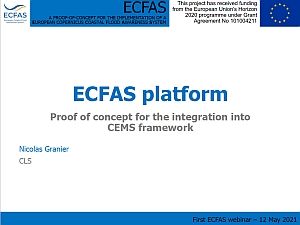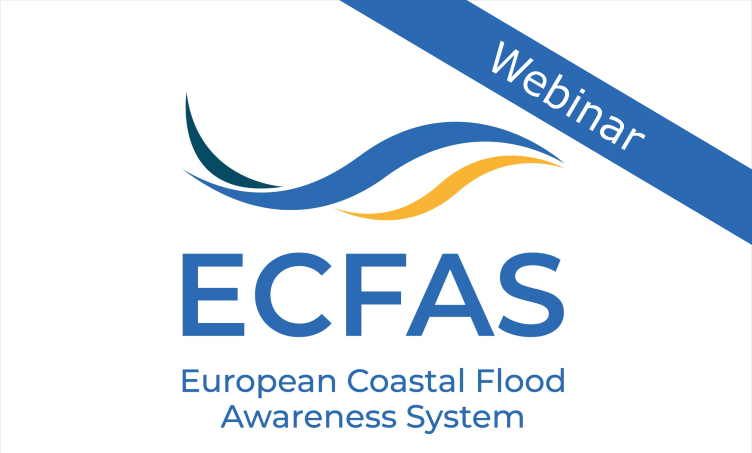Thank you to everyone who joined us for the first ECFAS webinar, which took place on 12th May at 10 AM CEST. Over 100 participants from all over Europe participated in this very interesting and informative event.
ECFAS will provide a coastal flooding early-warning and mapping platform (prototype) that will help local and regional authorities, as well as civil services, to prepare for and deal with coastal flood risk. ECFAS aims to provide geospatial services that will ultimately provide end users with decision support and situational awareness tools to support their operational needs in managing flood risk.
End users are a crucial part of ECFAS as they will help us to understand users’ needs and to address them in the design of the European Coastal Flood Awareness System. Through engaging with end users, ECFAS hopes to develop a mutually beneficial collaboration and partnerships for service co-design, co-development, and co-evaluation.
ECFAS will provide a much-needed solution to bolster coastal resilience to climate risk and reduce population and infrastructure exposure by monitoring and supporting disaster preparedness, two factors that are fundamental to damage prevention, response and recovery if a storm hits. ECFAS will provide a “Proof of Concept” to demonstrate the practical feasibility of a coastal flood awareness system. Through a series of test cases, ECFAS will build on existing tools from the Copernicus compendium, customizing them for applications in the coastal zone at pan-European scale. The ECFAS Proof of Concept development will run from January 2021 to December 2022.
ECFAS benefits from the advice and guidance from JRC, EEA, ECMWF, ESA and Mercator Ocean International. It also formally involves the Copernicus User Forum of Italy, Greece, Spain, Germany and France in the ECFAS Users Board.
Webinar Content
Topics:
1. Welcome to ECFAS.
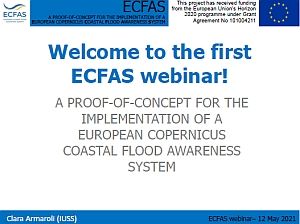
2. Users needs for a European coastal flood awareness system.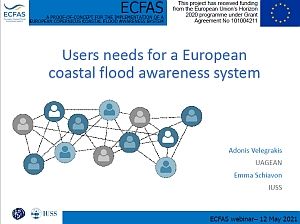
3. Coastal exposure and vulnerability: methodologies and datasets.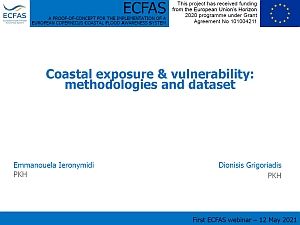
4. Impact of Coastal Storms on Beaches. See it again here.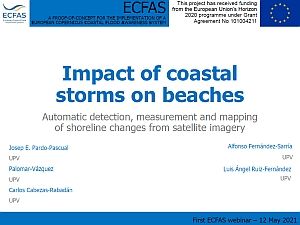
5. Forecasts of total water levels at the coast and identification of thresholds triggering coastal flood mapping. See it again here.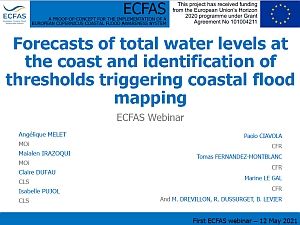
6. Implementation of the coastal flood awareness system and impact assessment.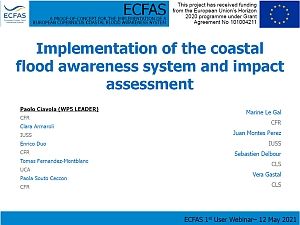
7. ECFAS Platform. See it again here.